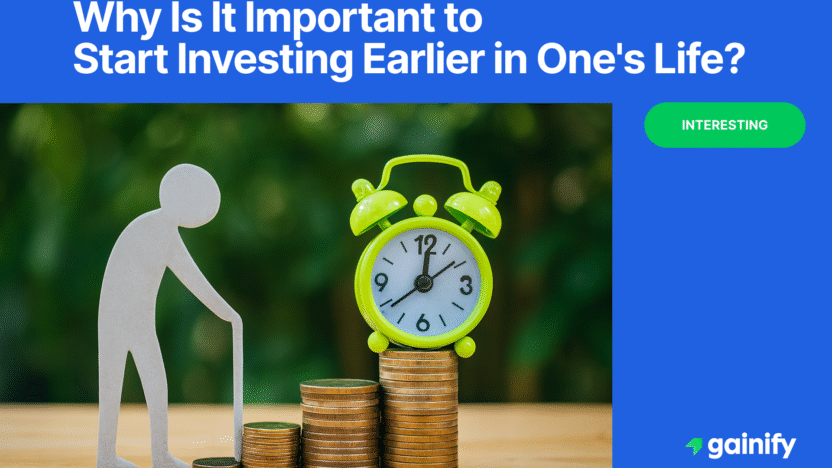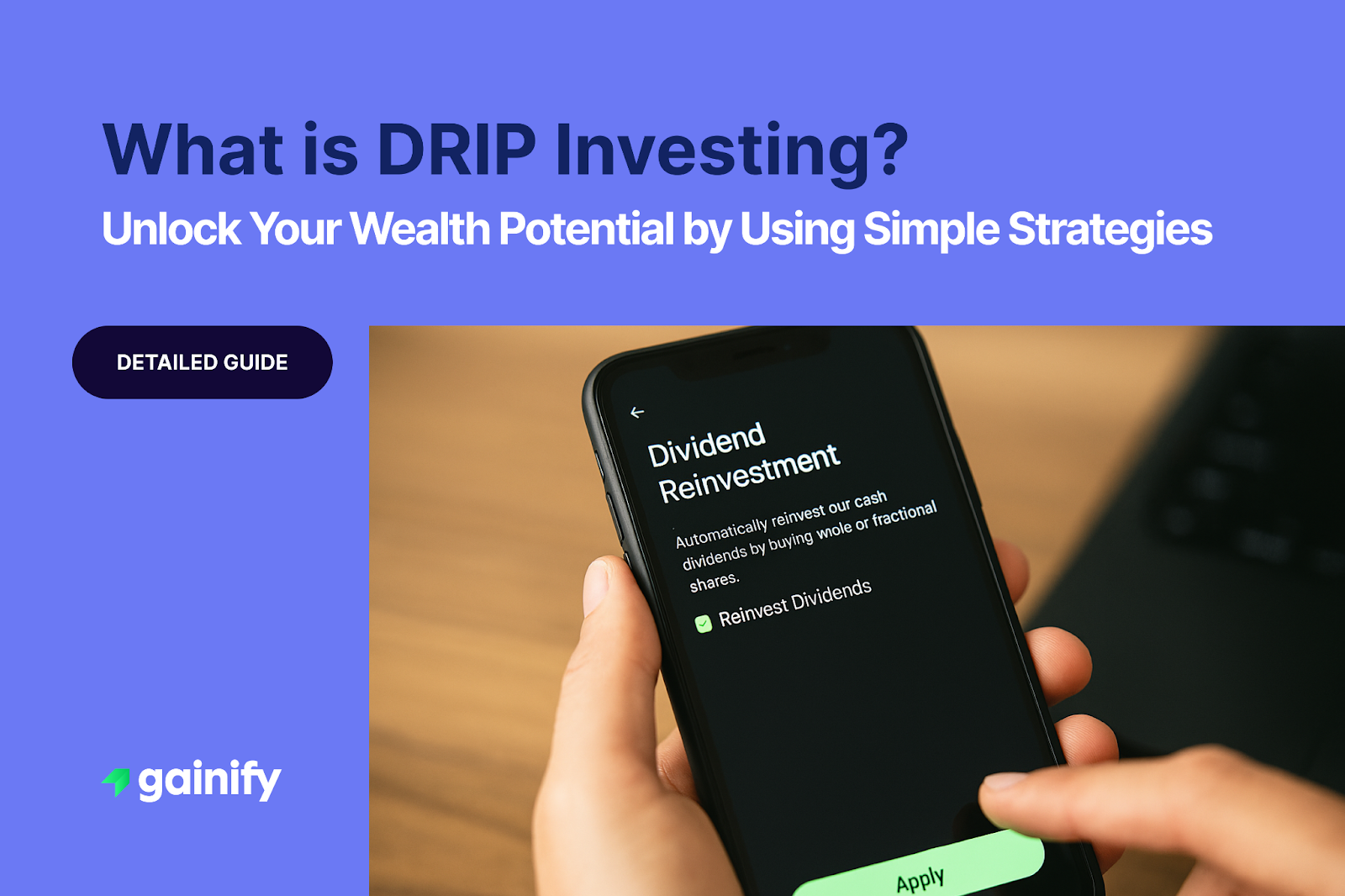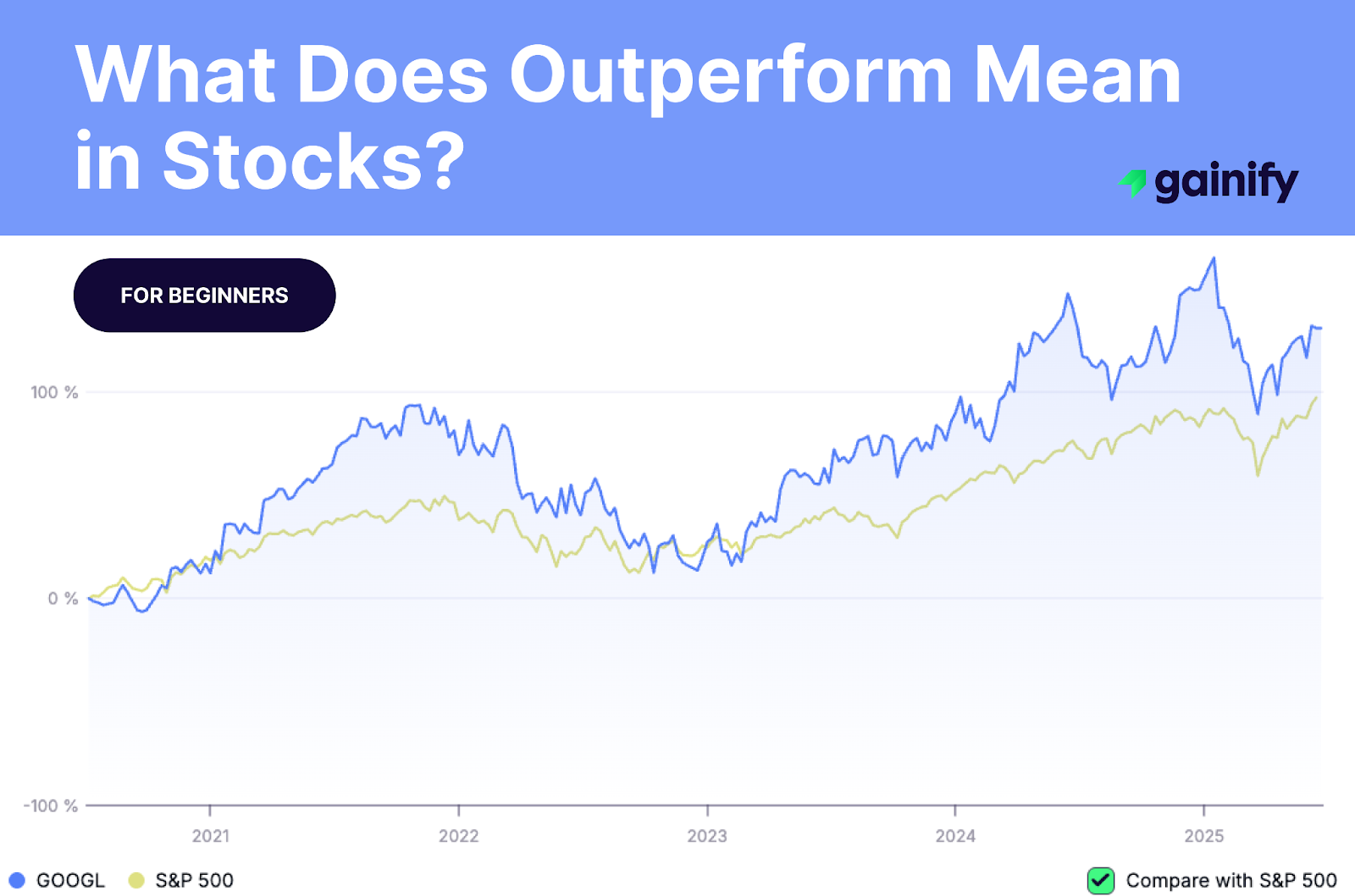When it comes to building wealth, time is your most valuable asset. Many people think investing is something to start later in life once they have a higher salary, less debt, or more savings. The reality is that waiting often costs more than people realize. Beginning early allows your money to grow for decades, gives you more opportunities to recover from market downturns, and reduces the pressure to contribute large amounts later in life.
Investing is not only about chasing big returns. It is about developing consistent habits, using tax-advantaged accounts wisely, and taking advantage of the power of compound interest. By starting early, even with modest amounts, you can build a financial foundation that supports retirement, housing expenses, education costs, and other long-term financial goals. Waiting until later means you lose out on years of growth that you can never get back.
The answer to why investing earlier in one’s life is so important can be summarized in ONE PRINCIPLE: time multiplies money.
Compounding, tax benefits, and steady contributions combine to create results that are nearly impossible to replicate if you delay. This article explains why time in the market is critical, how compound interest works in your favor, the role of tax-advantaged retirement accounts, and practical strategies to start investing in your 20s or 30s, even if you feel you do not have much to begin with.
The Power of Compound Interest
Compound interest is the single biggest reason to invest early. Compounding means that not only do you earn returns on your original investment, but those returns themselves generate additional returns. Over long periods, the effect is exponential.
Example 1: If you invest $5,000 at age 25 and earn a 7 percent annual return, by age 65 that money grows to about $74,000. If you wait until age 35 to invest the same $5,000, it grows to only $38,000 by 65. The difference is dramatic, and it comes entirely from time.
Example 2: Suppose you invest $200 per month beginning at age 25. By 65, you will have contributed $96,000. With a 7 percent return, that becomes over $500,000. If you wait until age 40 and invest $500 per month, your total contributions will be higher at $150,000, but the balance will be only about $400,000. Starting early gives compounding more time to work and lowers the amount you need to save later.
Compounding rewards consistency. Every year you wait is a year you lose permanently.
More Time to Handle Market Volatility
The stock market always carries risk, and prices move up and down in the short term. Younger investors who start early have the ability to ride out downturns because they have decades before retirement. A market crash at 25 is less damaging than one at 60 because there is more time to recover.
Historical data shows that despite recessions, bear markets, and financial crises, the U.S. stock market has always reached new highs over the long run. By starting early, you benefit from these recoveries and give your portfolio the time it needs to bounce back. Early investing allows you to view downturns as opportunities rather than threats. Buying during a bear market can even improve long-term returns if you are still adding new money.
Smaller Contributions Add Up
Many people delay investing because they think they need thousands of dollars to begin. The truth is that starting with smaller contributions early often beats starting with larger contributions later.
Comparison:
- Starting at age 25: $200 per month invested with 7 percent returns = about $500,000 by 65.
- Starting at age 35: $400 per month invested with 7 percent returns = about $480,000 by 65.
- Starting at age 45: $800 per month invested with 7 percent returns = about $460,000 by 65.
In all cases, the later you start, the more you must contribute to catch up. Early investing reduces the burden on your future self and makes achieving long-term financial goals more realistic.
Building Strong Financial Habits Early
Investing is not just about money; it is also about behavior. Starting in your 20s or 30s helps you develop habits that will serve you for life. These include:
- Budgeting for investing: Setting aside a portion of your income before you spend it. Using simple budgeting rules, like the 50/30/20 rule, can help you prioritize saving and investing.
- Using the right investment vehicles: Learning to use workplace retirement plans such as 401(k)s, opening an IRA, or considering mutual funds and ETFs that provide diversification.
- Avoiding emotional decisions: By investing early, you gain experience in staying disciplined during market swings. Over time, you learn to focus on long-term goals rather than daily price changes.
Financial habits, once established, compound in the same way money does. Starting early gives you more years to practice and refine those habits.
Benefits for Retirement and Long-Term Goals
One of the most significant reasons to invest early is retirement planning. Social Security was never designed to cover the full cost of retirement. Relying only on Social Security can leave large gaps. Early and consistent investing in tax-advantaged accounts ensures that retirement income will come from multiple sources, including your 401(k), IRAs, and taxable accounts.
Investing early also helps with other major financial goals such as:
- Saving for a home down payment and covering property taxes and maintenance costs.
- Funding children’s education.
- Building streams of passive income through dividend-paying stocks or real estate investment trusts (REITs).
- Creating a cushion for unexpected events or healthcare expenses later in life.
By starting early, you give yourself more flexibility to achieve these goals without financial stress.
Tax Advantages of Starting Early
Account type matters. Contributing to a workplace retirement plan like a 401(k) or a tax-advantaged retirement account such as a Traditional IRA or Roth IRA can magnify the benefits of starting early.
- Traditional IRA or 401(k): Contributions may reduce taxable income today. Earnings grow tax-deferred, and taxes are paid when you withdraw in retirement.
- Roth IRA: Contributions are made with after-tax dollars, but all future growth and qualified withdrawals are tax-free.
Starting early in these accounts gives your money decades to grow without being eroded by annual taxes. This advantage is one of the most overlooked reasons why beginning in your 20s or 30s is so powerful.
Practical Steps to Start Investing Early
You do not need to be wealthy to begin. Here are useful steps for anyone getting started:
- Capture Employer Matches
If your employer offers a 401(k) match, contribute enough to receive the full match. This is essentially free money and can significantly boost your returns. - Open an IRA
If you do not have access to a 401(k) or want to invest more, consider an IRA or Roth IRA. Both offer tax advantages that accelerate growth. - Automate Investments
Set up automatic contributions from your checking account. Treat investing like a bill you must pay every month. This reduces the temptation to skip contributions. - Start With Broad Diversification
Exchange-traded funds (ETFs) and mutual funds that track the S&P 500 or total market indexes are excellent choices for beginners. They provide exposure to hundreds of companies at a low cost. - Eliminate High-Interest Debt
Pay off credit card debt before aggressively investing. The guaranteed return from eliminating 20 percent interest is far greater than expected stock market returns.
Key Takeaways
- Time is the biggest advantage an investor has. Starting early allows compound interest to multiply your wealth.
- Investing young gives you decades to recover from market volatility.
- Smaller, consistent contributions can lead to significant balances over time.
- Early investing builds habits that make personal finance easier in later stages of life.
- Tax-advantaged accounts such as 401(k)s, IRAs, and Roth IRAs amplify long-term growth.
- Beginning in your 20s or 30s provides flexibility to meet retirement, housing, education, and healthcare goals without unnecessary stress.
Final Word
The most important step in building wealth is to begin as early as possible. The money you invest in your 20s and 30s has decades to compound, turning modest contributions into life-changing sums. By starting early, you also develop the financial discipline and resilience needed to succeed through market cycles.
Waiting until later forces you to contribute much larger amounts, and even then you may not fully catch up. Treat your 20s and 30s as your wealth-building decades. The sooner you begin, the sooner you put compound interest, tax advantages, and good habits to work for you.
⚠️ Disclaimer: This article is for informational and educational purposes only. It does not constitute financial advice. Everyone’s financial situation is unique. Consider speaking with a licensed financial advisor before making investment decisions.




